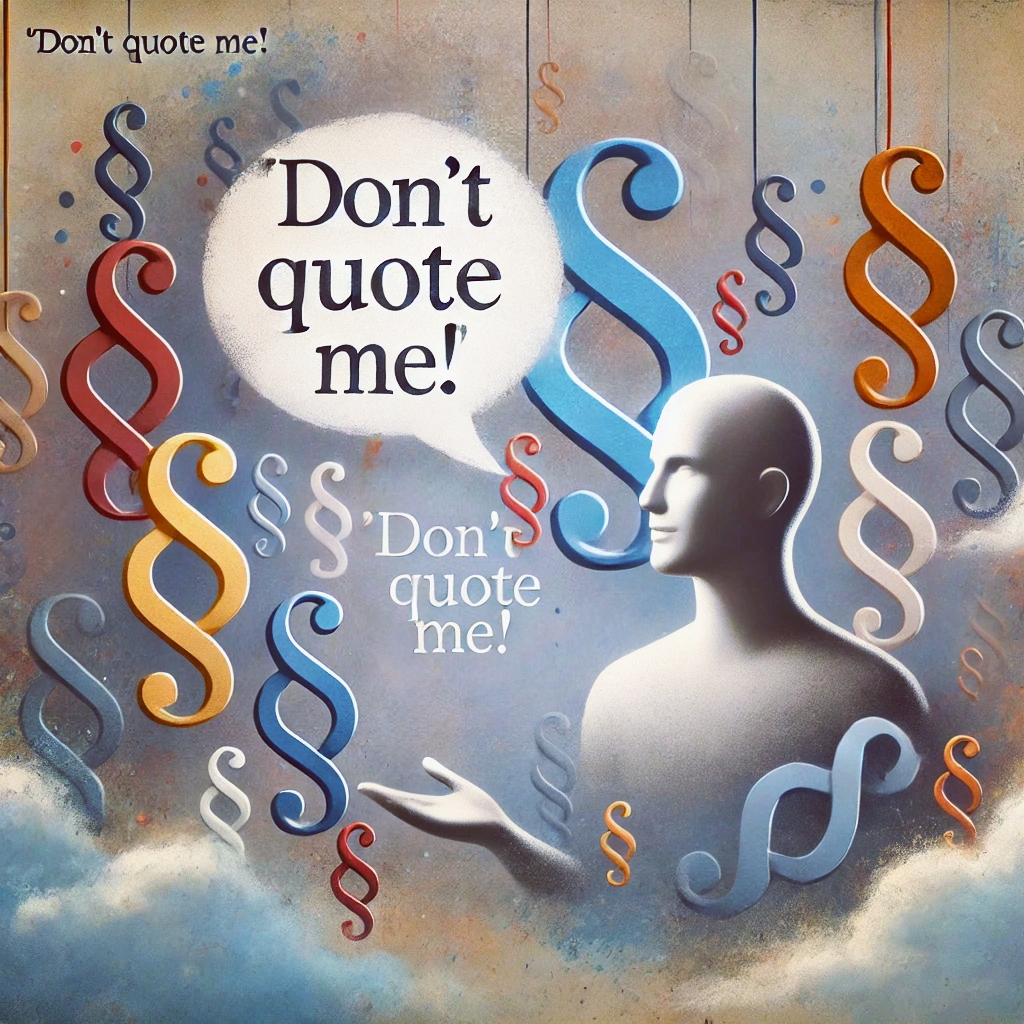
In heated situations, the phrase "Don’t quote me!" is commonly employed as a humorous way to escape the repercussions of being misinterpreted or taken too seriously. When you're unsure whether what you're saying is true or when you don't want to be held accountable for how it might be repeated in the future, you use this verbal escape hatch, also called a disclaimer. You can be flexible (or deniable) in this way, which is similar to stating, "I'm saying this, but not really."
Sometimes, knowing that what they're disclosing might not stand up to inspection, people use "don't quote me" while sharing insider information or rumours. It's a method of contributing to the discussion while preserving plausible deniability. It can make a conversation more interesting by giving the impression that you are sharing a secret without really committing to it. However, there is more to it than that: a dread of being misinterpreted or misrepresented, particularly in a society where words are easily misconstrued.
Additionally, the statement may convey a lack of confidence. Perhaps you want to help but are unsure if what you're saying is totally accurate. You want to take part in the discussion without worrying about any negative reactions. It serves as a buffer, allowing you to test theories or communicate ideas without jeopardising your credibility.
However, "don't quote me" can also be used to highlight how informal a comment is. It serves as a reminder that not everything we say must be taken literally and an opportunity to be casual. The phrase is a call for freedom—a request to keep casual words just that—casual at a time when social media can turn any sentence into a headline.
In the end, "don’t quote me" is as much a self-defence tactic as it is an awareness of the environment in which we speak. It serves as a reminder that while words have weight, they are not always intended to be absolute statements. In our everyday encounters, there's an intriguing fusion of prudence, humour, and a dash of compassion.